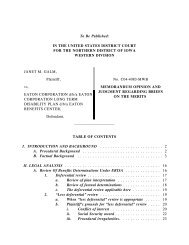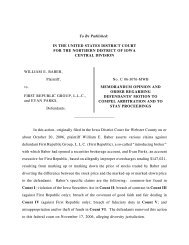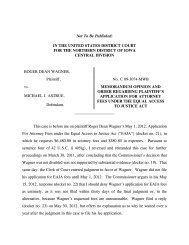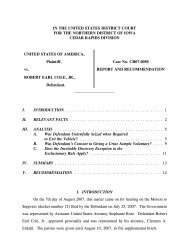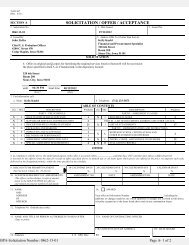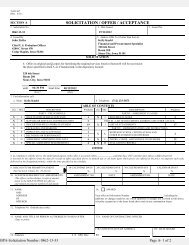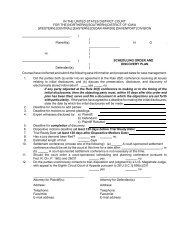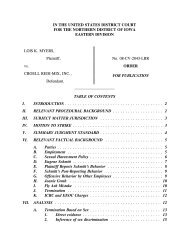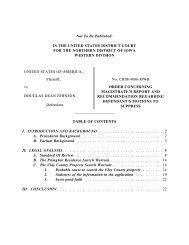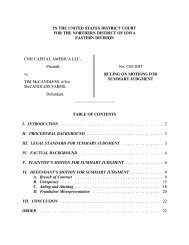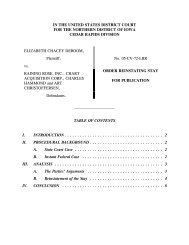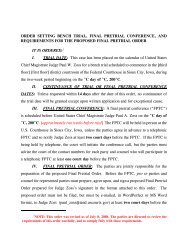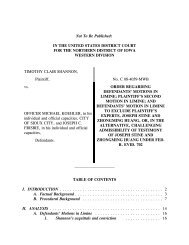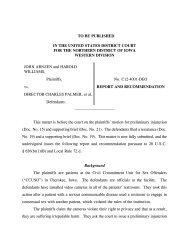IN THE UNITED STATES DISTRICT COURT FOR THE NORTHERN ...
IN THE UNITED STATES DISTRICT COURT FOR THE NORTHERN ...
IN THE UNITED STATES DISTRICT COURT FOR THE NORTHERN ...
Create successful ePaper yourself
Turn your PDF publications into a flip-book with our unique Google optimized e-Paper software.
with criminal conduct under the CSA for filling a prescription without “a legitimate<br />
medical purpose” or outside the “usual course of his professional practice.” 21 C.F.R.<br />
§ 1306.04(a) (“The responsibility for the proper prescribing and dispensing of controlled<br />
substances is upon the prescribing practitioner, but a corresponding responsibility rests<br />
with the pharmacist who fills the prescription.”). “Thus, a pharmacist may not fill a<br />
written order from a practitioner, appearing on its face to be a prescription, if he knows<br />
the practitioner issued it in other than the usual course of medical treatment. The<br />
regulation gives ‘fair notice that certain conduct is proscribed.’” United States v. Hayes,<br />
595 F.2d 258, 260 (5th Cir. 1979) (quoting Rabe v. Washington, 405 U.S. 313, 315<br />
(1972)).<br />
As set forth above, courts have held the language “legitimate medical purpose” and<br />
“usual course of his professional practice” is not unconstitutionally vague as applied to<br />
physicians. The court does not see, and the moving defendants have not offered, a<br />
rationale by which it could conclude this language is constitutional as applied to physicians<br />
but unconstitutional as applied to pharmacists. Moreover, previous challenges by<br />
pharmacists to the constitutionality of the CSA on vagueness grounds have failed. See id.<br />
at 260-61 (rejecting vagueness challenge as to pharmacist); United States v. Hernandez,<br />
No. 07-60027-CR, 2007 WL 2915854, *9 (S.D. Fla. Oct. 4, 2007) (denying motion to<br />
dismiss indictment for CSA violations on vagueness grounds as applied to Internet<br />
pharmacy owners, operators, physicians and pharmacists). Finally, the government cites<br />
a number of cases showing pharmacists have routinely been prosecuted for violations of<br />
the CSA when acting outside the usual course of professional practice. See Brief in<br />
Resistance to Bouchey and Kanner Motions at 17-19. Such cases include United States v.<br />
Kershman, 555 F.2d 198, 202 (8th Cir. 1977) (finding sufficient evidence supported<br />
conviction of pharmacist under CSA); United States v. Steele, 178 F.3d 1230, 1232 &<br />
1241 (11th Cir. 2000) (affirming conviction of pharmacist under CSA for filling<br />
19



